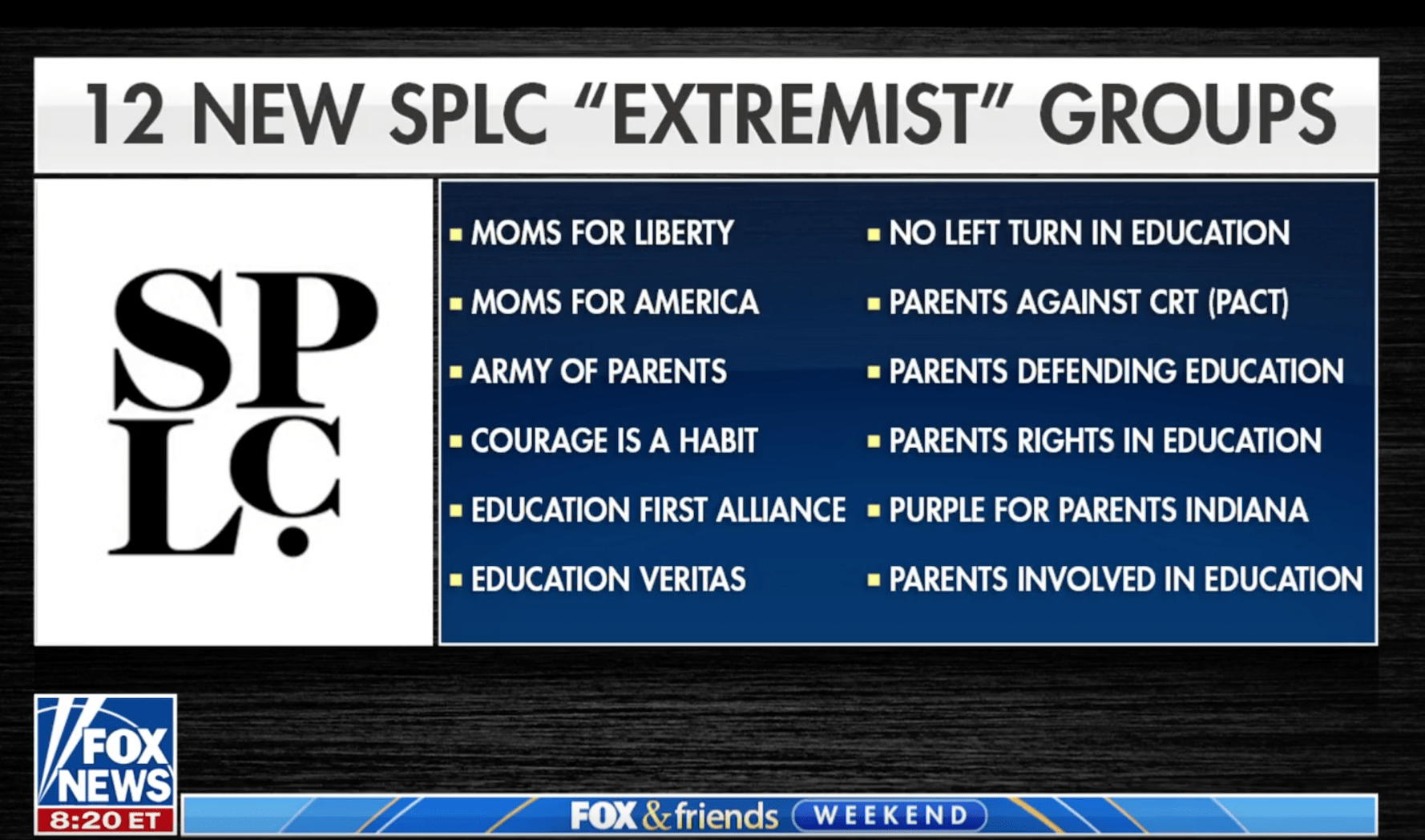The Southern Poverty Law Center (SPLC) has recently caused controversy by listing Education First Alliance, a Republican-connected “parents’ rights” group, as an “anti-government extremist” organization in its annual Year in Hate & Extremism report. ThisParents Rights Groups labelled as Extremists categorization puts the group, which has members and endorsees sitting on school boards across the country, alongside well-known anti-government organizations like the Oath Keepers, the Three Percenters, and the John Birch Society.
Education First Alliance founder Sloan Rachmuth, co founder of Army of Parents, Elicia Brand and president of No Left Turn in Education, Dr. Elana Fishbein join ‘Fox & Friends Weekend’ express ‘concern’ that the Southern Poverty Law Center placed parent’s rights groups at the same level as neo-Nazis.
According to the SPLC report, Moms for Liberty has gained influence through tactics such as intimidating and harassing teachers and school officials, engaging in battles with teachers’ unions, targeting corporations that support LGBTQ+ rights (including Disney), and capitalizing on laws like Florida’s controversial “don’t say gay” statute, which restricts classroom discussions on gender and sexual identity.
The report further states that Moms for Liberty has established over 200 branches nationwide, with each branch now being listed by the SPLC as an extremist group. The organization’s primary focus, as noted by the SPLC, is to attack public education, ban books, and remove curriculum content that addresses race, discrimination, and LGBTQ+ identities. These actions have led to their inclusion in the SPLC’s Year in Hate & Extremism report.
The listing of Moms for Liberty and parents rights group as an “anti-government extremist” organization has generated mixed reactions. Supporters argue that the group is merely advocating for parental rights and fighting against what they perceive as ideological indoctrination in schools. They see the SPLC’s characterization as an attempt to suppress conservative viewpoints and label concerned parents as extremists.
On the other hand, critics of Moms for Liberty assert that the group’s tactics, such as intimidating teachers and opposing inclusive education, are harmful to students and contribute to a hostile learning environment. They argue that the SPLC’s designation is warranted, as Moms for Liberty’s actions align with a broader pattern of anti-government extremism that seeks to undermine public education and restrict discussions on important social issues.
As with any contentious issue, it is essential to consider multiple perspectives and engage in constructive dialogue. The debate surrounding Moms for Liberty’s inclusion in the SPLC’s report reflects deeper divisions within society regarding the role of education, parental rights, and the boundaries of free speech. Ultimately, finding common ground and promoting respectful discourse is crucial to addressing these complex issues and working towards a more inclusive and equitable education system.
